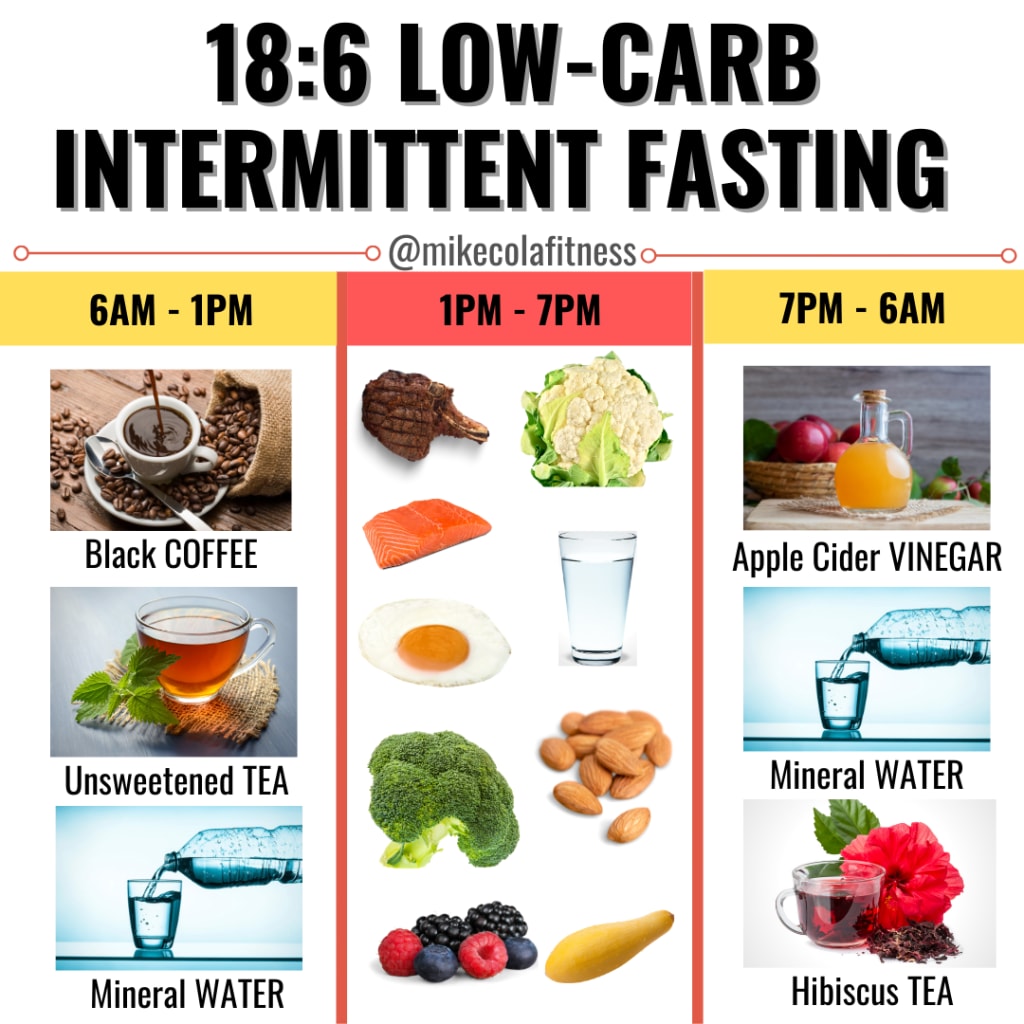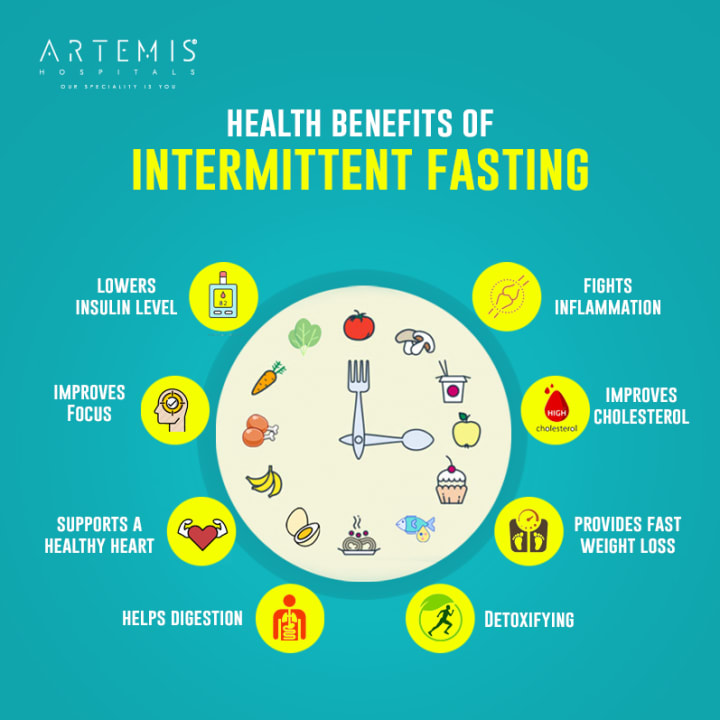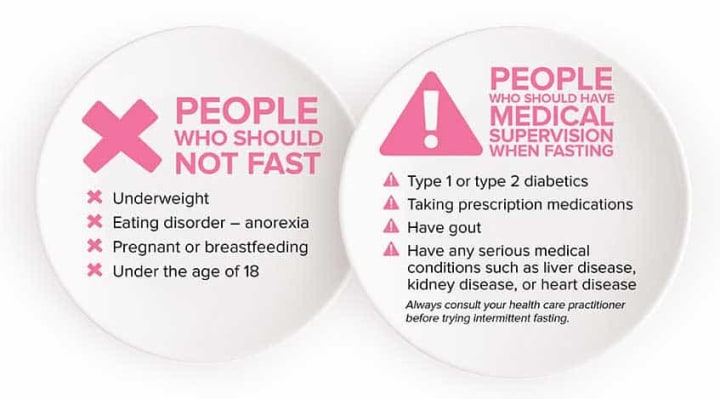
Intermittent fasting is a pattern of eating where a person alternates periods of eating with periods of not eating. It can take many forms, but some of the most popular include the 16/8 method (fasting for 16 hours and eating within an 8 hour window), the 5:2 diet (eating normally for 5 days and restricting calorie intake for 2 non-consecutive days), and alternate day fasting (eating normally one day and restricting calorie intake the next). Intermittent fasting has been shown to have various health benefits, including weight loss, improved insulin sensitivity, and reduced inflammation, but more research is needed to fully understand its effects and to determine the best ways to use it for specific health conditions.
There are several different types of intermittent fasting, including:
The 16/8 method:
This involves fasting for 16 hours and eating during an 8 hour window. For example, if you finish your last meal at 7pm, you wouldn't eat again until 11am the next day.
The 5:2 diet:
This involves eating normally for 5 days and restricting calorie intake to 500-600 calories for 2 non-consecutive days.
This involves eating normally one day and restricting calorie intake the next.
The Warrior Diet:
This involves eating a small amount of raw fruits and vegetables during the day and then eating one large meal at night.
The Eat-Stop-Eat Method:
This involves fasting for 24 hours once or twice a week, for example not eating from dinner one day to dinner the next day.
The Spontaneous Meal Skipping:
It involves skipping any meal whenever you feel like it.
It's important to note that different types of intermittent fasting may be more suitable for different people based on their lifestyle and dietary preferences. It's always best to consult a healthcare professional before starting any new diet or exercise program.
ADVANTAGE OF INTERMITTENT FASTING

Intermittent fasting has been shown to have several potential health benefits, including:
Weight loss:
Intermittent fasting may lead to weight loss by reducing overall calorie intake and increasing the number of calories burned during the fasting period.
Improved insulin sensitivity:
Intermittent fasting can improve the body's ability to respond to insulin and lower blood sugar levels, which may be beneficial for people with type 2 diabetes or at risk of developing diabetes.
Increased longevity:
Intermittent fasting may help to extend lifespan by reducing oxidative stress and inflammation.
Improved heart health:
Intermittent fasting may lower blood pressure and cholesterol levels, which can reduce the risk of heart disease.
Better brain health:
Intermittent fasting may improve cognitive function, increase the growth of new neurons, and protect the brain against age-related decline.
Cancer prevention:
Intermittent fasting may have anti-cancer effects by reducing the risk of cell mutations and promoting cell repair.
Improved athletic performance:
Intermittent fasting may increase endurance and muscle mass, as well as improve recovery time after exercise.
It's important to note that more research is needed to fully understand the effects of intermittent fasting and to determine the best ways to use it for specific health conditions. It's always best to consult a healthcare professional before starting any new diet or exercise program.
DISADVANTAGE OF INTERMITTENT FASTING:

Intermittent fasting, like any other diet or lifestyle change, may also have some potential downsides, such as:
Hunger and low energy levels:
Intermittent fasting can cause feelings of hunger and low energy levels during the fasting period, especially in the beginning.
Difficulty sticking to the plan:
Intermittent fasting may be difficult to stick to, especially for those with busy schedules or who enjoy eating throughout the day.
Risk of overeating:
Some people may overeat during the non-fasting period to make up for the calories not consumed during the fasting period.
Nutrient deficiencies:
Intermittent fasting may lead to nutrient deficiencies, especially if the diet is not well planned and balanced.
Hormonal imbalances:
Intermittent fasting may disrupt hormones, such as cortisol, which can lead to imbalances that can affect hunger and metabolism.
Increased muscle loss:
Intermittent fasting may lead to muscle loss, particularly if the diet is not balanced and enough protein is not consumed.
Not suitable for certain individuals:
Intermittent fasting may not be suitable for certain individuals, such as pregnant or breastfeeding women, people with a history of eating disorders, or those who are underweight.
It is always important to consult with a healthcare professional before starting any new diet or exercise program, especially if you have any underlying health conditions or concerns.
About the Creator
Jagadeesh k
Hi, my name is jagadeesh, I am a blogger and fitness freak and have been experence in the field . I am particularly interested in givng tips . Nice to meet you."
Interests >Fitness, >learming.






Comments
There are no comments for this story
Be the first to respond and start the conversation.